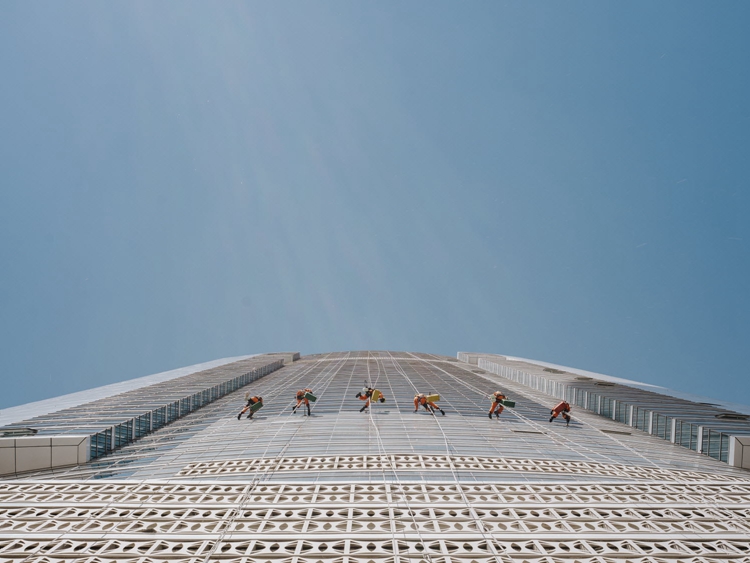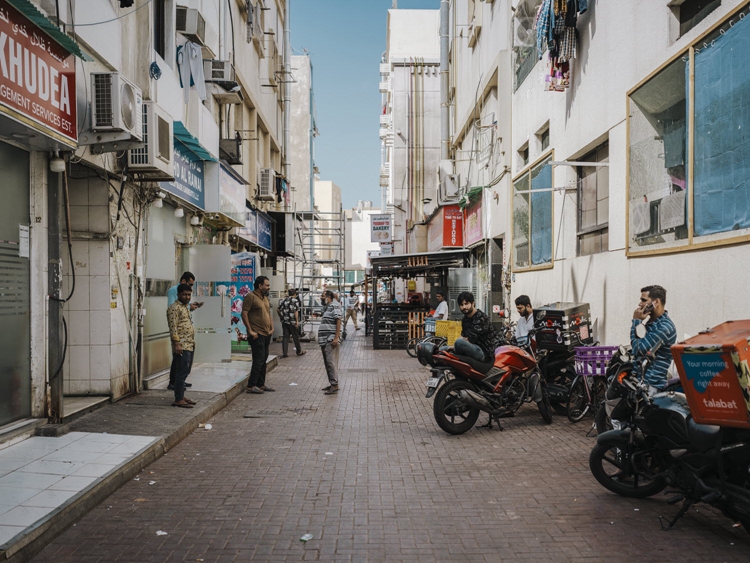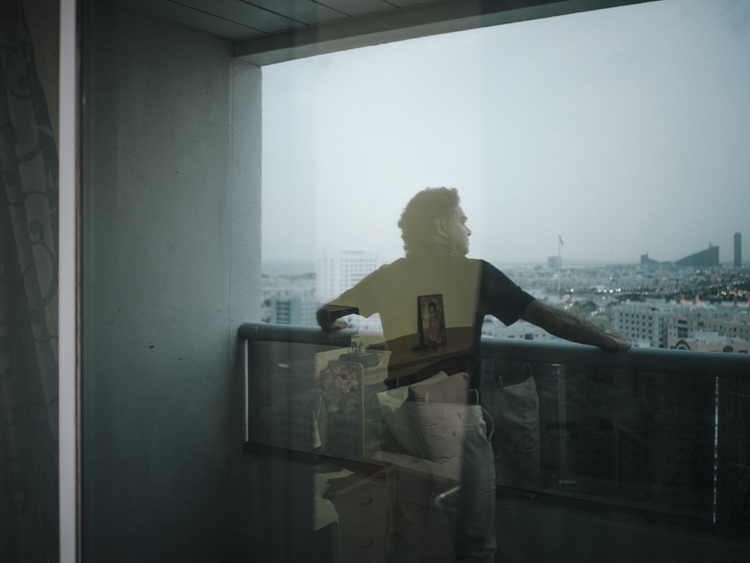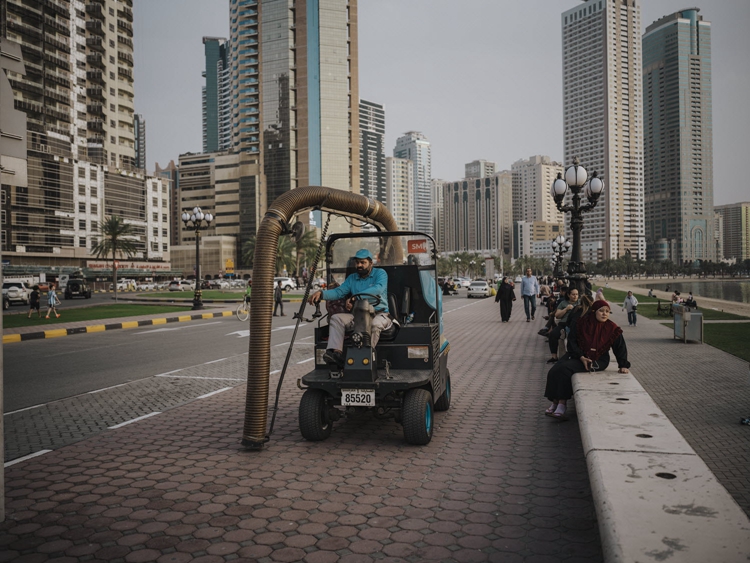Bread and Butter
Text and photos by Mario Heller/Panos Pictures
Abridged by Syharn Shen (沈思含)
Bread and Butter
Text and photos by Mario Heller/Panos Pictures
Abridged by Syharn Shen (沈思含)

Abseiling down the facade of a Dubai skyscraper, these workers are part of the United Arab Emirate's large migrant labor community, crucial to the city's development, yet often under-recognized in service and construction sectors.
In the lively streets of Bur Dubai, a dense neighborhood echoed with honks and the hum of motorbikes, one might momentarily think they are in India or Pakistan. This area, adorned with shops like "Light House Electronics" and "Friendship Ties Bakery," bustles with the energy of its predominantly South Asian population, making up nearly half of Dubai's 9.6 million residents. Here, a diverse tapestry of life unfolds, where the scent of roasting spices fills the air and men play cricket under the sun, occasionally disrupted by a local Emirati passing by, a subtle reminder of the Arabian backdrop.
Dolford and Adhihetty are emblematic of those drawn by Dubai's promise of prosperity. "We could afford bread in India, but in Dubai we earn so much that our families in Mumbai can afford butter on top," Dolford remarks. The harsh realities of their migration include overcrowded living conditions, with 20 men crammed into a space meant for three, despite restrictions against such arrangements. Adhihetty's narrative of initial success and subsequent struggles—losing his job due to his mother's illness, returning to India, and facing financial ruin during the pandemic—highlights the precariousness of expatriate life.

Motorbike delivery workers and other migrant workers from the Asian subcontinent gather in a narrow street lined with small shops and businesses.
The allure of Dubai also captivates the younger generation differently. Twelve-year-old Bruha, born and raised in Dubai, feels little connection to India, viewing it as "unhygienic" and "dangerous for children." She dreams of acting, reflecting her more global aspirations, yet is aware of the challenges faced abroad, influenced by her brother's experiences in Germany.
The historical context of this migration dates back to the 19th century, escalating significantly during the 1970s oil boom. Initially composed of laborers, the Indian and Pakistani communities in the UAE have evolved to include highly skilled professionals. However, changing immigration policies and geopolitical tensions, particularly with India's strained relations over the UAE's alliances with Pakistan and China, cast uncertainty on the future of these diasporas.

Manas Vilas, who arrived in Dubai in 2003, reflects on his journey: "Back then, there was nothing at all, a small city with a lot of desert." Like other Indians, he was blinded by the illusion that the United Arab Emirates was a kind of paradise. "Dreams are dreams and the reality was completely different." At the same time, the pressure to succeed was very high. "Returning would have meant that I had failed in the eyes of my friends and family."
Manas, Bruha's father and part of an early wave of migrants, shares his journey of navigating lower-than-expected salaries and limited social life to eventually finding success and community in Dubai. Yet, he acknowledges that not all migrants are as fortunate, with many unable to return home due to societal pressures and unmet expectations.
Conversely, Tahir, a Pakistani taxi driver, appreciates the security and order in Dubai, a stark contrast to the instability in his homeland. For him, the strict governance of the UAE ensures safety and public decorum, which is reassuring despite the daily frustrations of traffic.

A street sweeper cleans the pavement using a mobile street vacuuming machine.
The darker aspects of migration are revealed in young Arslan's story. Working illegally in construction at just 13, Arslan endures harsh conditions to support his family back in Pakistan, a narrative that underscores the ongoing challenges and exploitation within the labor market in Dubai.
These stories from Dubai paint a complex picture of opportunity interwoven with hardship, where dreams are both realized and deferred, and the city's glittering facade often belies the tougher realities faced by its migrant communities.
Contact Us | Plan a Visit | Donate
8 Lide Road, Beitou 11259, Taipei, Taiwan
886-2-2898-9999
005741@daaitv.com
©Tzu Chi Culture and Communication Foundation
All rights reserved.
